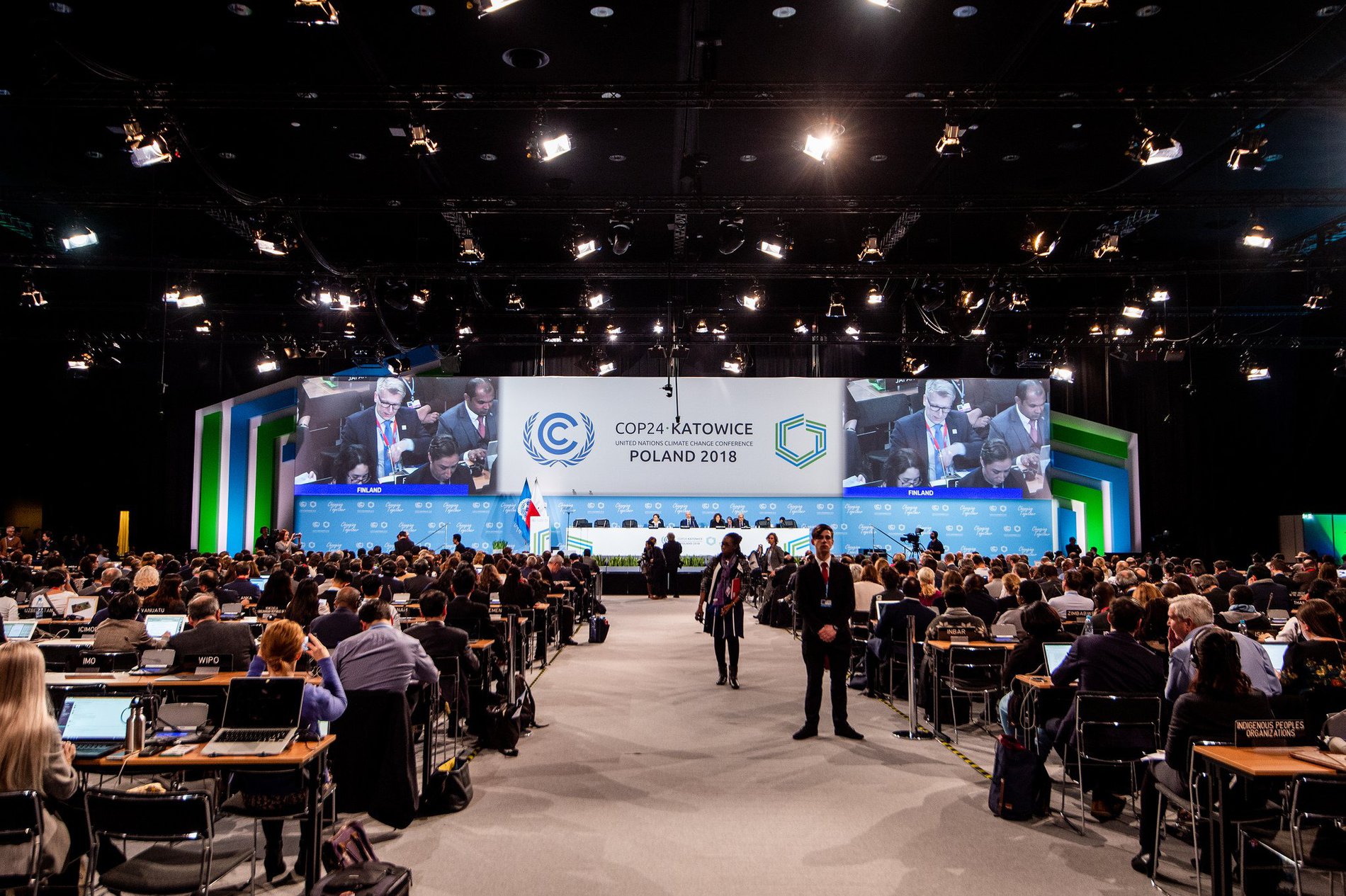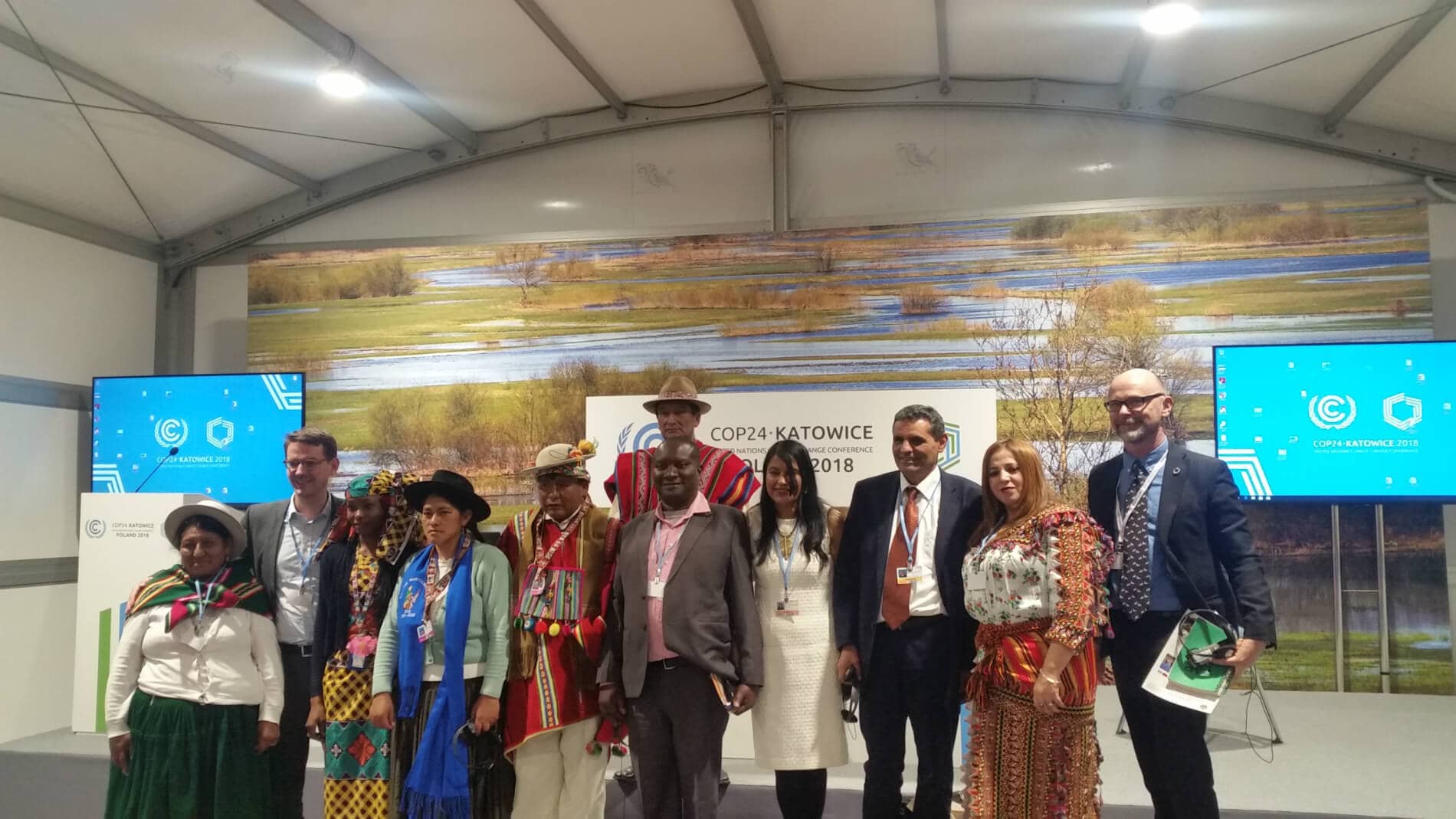
When it comes to state action on climate change, there is perhaps no better exemplar than Bolivia. After all, the plurinational state has integrated indigenous traditional knowledge (ITK) into its climate mitigation and adaptation process.
However, the state of Bolivia is far from alone in its climate change leadership. From South America to Africa, Indigenous groups are joining forces with international organizations such as UNESCO and the German sustainable development group, GIZ, to bring their knowledge and visions to the legislative forefront–backed behind the ‘Living Well’ cosmovision that offers a collective means to halt the harm of climate change to our harvests, water availability, infrastructure and health.
“Their knowledge is very contextualized to their environment and the climate strategies are different depending on where you go,” says Dr. Till Below, climate change advisor for GIZ, who was commenting on how detailed ITK can be and how each nation state requires the participation of Indigenous peoples when developing new climate policy. Some indigenous peoples, for instance, know how to organize certain plant species to prevent disastrous forest fires, while others know to observe the direction a cow faces laying down to determine that there’s incoming rain.
Indigenous peoples around the world have cultivated millenary biocultural indicators and practices through their daily interrelations with nature. That knowledge is emphasized by living in harmony with Mother Earth, a point that is often highlighted by environmentalists, activists, scientists, and key documents like the IPCC report and the Paris Agreement.
As the Indigenous public platform in charge of Bolivia’s climate change policies stated at a COP24 side event, “With our knowledge and ‘Living Well’, we build indigenous resilience to face Climate Change.”
ITK presents crucial information on how to carry out ecosystem-based adaptation which often integrates climate mitigation methods at a relatively low cost, something that is profoundly important to developing nations struggling to secure the requisite finances to deal with the damage of climate change, as well as for indigenous communities who want to have their environmental directives heard.
These ancient wisdoms are becoming normalized at the state level through regional indigenous platforms, such as the IPACC, a network of 22 African countries that is supported by scientific institutes, as well as UNESCO and GIZ, which has over 200 climate adaptation projects worldwide.
Among other things, they facilitate sessions with local indigenous herders and chefs to discuss the climate situation in their native language the climatic situation, carry out joint impact assessments revealing their specific indicators of climate damage, share ancestral environmental knowledge and deliberate on their methods for adaptation.
Such was the case in Chad and Burkina Faso this year, where two-day meetings gave regional pastoralists an opportunity to share the ways they read the stars, observe animal and insect behavior, diversify their seeds, calculate wind patterns, and manage their calendars. They also discussed how exactly climate change has disrupted this interconnectivity and how precisely we can turn things back on track.
Translating the oral wisdom into written form is carried out together under the management of indigenous locals who capture the flowing data into drawings and graphs which are then presented to government ministers and scientific researchers.
This deep regional knowledge of the interrelated world presents a decidedly different vision—and a different analytical process–than Western science.
“We know this information due to the fact that we are attentive and living in harmony with nature,” says Hindou Oumar, Executive Committee member of IPACC.

The Bolivian indigenous delegation with Hindou Oumar, UNESCO and GIZ
The highly sensitive observational process is increasingly acknowledged by the scientific community because it has embedded itself into and created specific bioecological realizations surrounding the intricately balanced web of life. This, in turn, has opened up multiple pathways to secure water, manage waste, and plan forests.
For instance, there is the case of Tchad. The people living in the central region of the country break the year into five seasons, while those in the south break it down into seven transitional seasons based off rain quantity in relation to crop growth. The growing work towards implementing this system provides the nation with a better understanding of the changing weather in a specific context. This allows them to mobilize more effectively to adapt their agricultural activities; and to re-stabilize the environment.
There is now an open dialogue with ministers and scientists on how to manage and interrelate findings together with current national policies and scientific research. This successfully led to governmental officials announcing indigenous knowledge integration into Burkina Faso’s national climate adaptation process in 2020.
“Some of them are very effective and relatively low-cost, such as a nutritional block that is given to cattle during extended dry seasons so that the quality and quantity of the milk stays the same as during the raining season,” says Nele Bünner, PAS-PNA. “The ingredients from the block are all from the region”.
An important part of the agenda is assuring that such discussions continue into the future through such coalitions, to catch all the crucibles of information–from specific bird calls indicating availability of fruits to traditional construction techniques that can withstand disasters.
Although it is a new movement, it is growing steadily. The indigenous public platform in charge of Bolivia’s climate change policies only formed on November 1st 2017, and the success of Burkina Faso arrived at the end of 2018. However, these cross-cultural groups have together formed an expanding network with a plan to implement their holistic climate change solution at COP24, hitting many of the marks of finance, stability and security.
With these knowledge sharing sessions expanding into Benin and Niger, and ‘Living Well’ gaining traction all around South America, what was once set aside as a sub-human savagery that should be replaced with ‘Western’ education, indigenous knowledge is now increasingly becoming a rich resource that is needed around the world to carry us through this environmental—and, indeed, existential–disaster.

Indigenous Peoples are putting their bodies on the line and it's our responsibility to make sure you know why. That takes time, expertise and resources - and we're up against a constant tide of misinformation and distorted coverage. By supporting IC you're empowering the kind of journalism we need, at the moment we need it most.